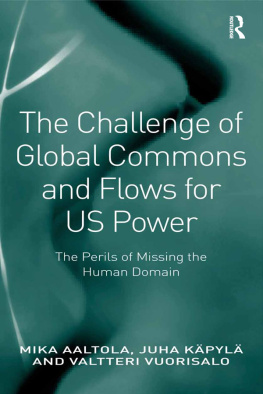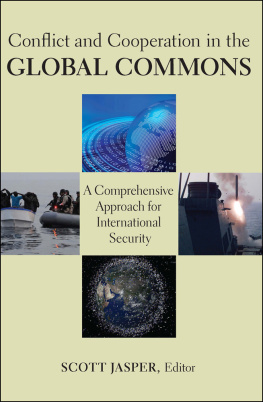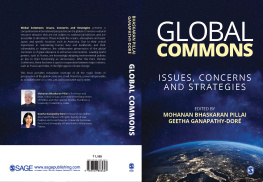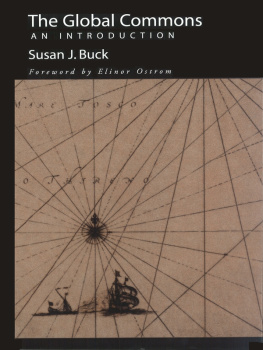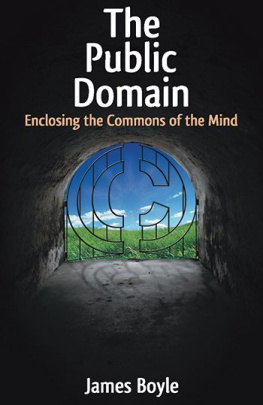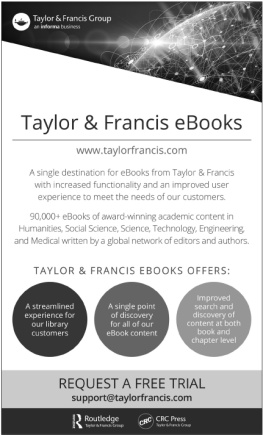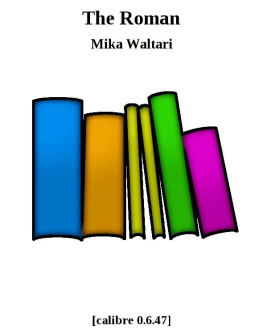THE CHALLENGE OF GLOBAL
COMMONS AND FLOWS FOR US POWER
The Challenge of Global Commons and Flows for US Power
The Perils of Missing the Human Domain
MIKA AALTOLA
The Finnish Institute of International Affairs, Finland and Tallinn University, Estonia
JUHA KPYL
The Finnish Institute of International Affairs, Finland
VALTTERI VUORISALO
University of Tampere, Finland
First published 2014 by Ashgate Publishing
Published 2016 by Routledge
2 Park Squre, Milton Park, Abingdon, Oxon OX14 4RN
711 Third Avenue, New York, NY 10017, USA
Routledge is an imprint of the Taylor & Francis Group, an informa business
Copyright Mika Aaltola, Juha Kpyl and Valtteri Vuorisalo 2014
Mika Aaltola, Juha Kpyl and Valtteri Vuorisalo have asserted their right under the Copyright, Designs and Patents Act, 1988, to be identified as the authors of this work.
All rights reserved. No part of this book may be reprinted or reproduced or utilised in any form or by any electronic, mechanical, or other means, now known or hereafter invented, including photocopying and recording, or in any information storage or retrieval system, without permission in writing from the publishers.
Notice:
Product or corporate names may be trademarks or registered trademarks, and are used only for identification and explanation without intent to infringe.
British Library Cataloguing in Publication Data
A catalogue record for this book is available from the British Library
The Library of Congress has cataloged the printed edition as follows:
Aaltola, Mika.
The challenge of global commons and flows for US power : the perils of missing the human domain / by Mika Aaltola, Juha Kpyl and Valtteri Vuorisalo.
pages cm
Includes bibliographical references and index.
ISBN 978-1-4094-6421-1 (hardback)
1. United StatesForeign relations21st century. 2. Global commons. 3. Security, International. I. Kpyl, Juha. II. Vuorisalo, Valtteri. III. Title.
JZ1480.A93 2014
327.73dc23
2013043677
ISBN 978-1-4094-6421-1 (hbk)
Contents
Introduction
To enable economic growth and commerce, America, working in conjunction with allies and partners around the world, will seek to protect freedom of access throughout the global commons []. Global security and prosperity are increasingly dependent on the free flow of goods shipped by air or sea []. The United States will continue to lead global efforts with capable allies and partners to assure access to and use of the global commons, both by strengthening international norms of responsible behaviour and by maintaining relevant and interoperable military capabilities.
Sustaining US Global Leadership, 2012,
United States Department of Defense
This work offers a practice-sensitive approach to describing and understanding the changing US articulations of its national power. Specific attention is devoted to the recently emerged practices tied to global commons and global flows. The key starting point is that the conceptualizations of US power in general, and military power in particular, are evolving increasingly towards the recognition that flow-dynamic, mobility, agility and resilience are becoming the key characteristics of power. This insight is coupled with the observation that the US conception of power today is also pragmatic, eclectic and smart it adopts a combination of hard and soft tools as well as a pragmatic stance towards multilateralism and the outsourcing of security tasks. In this context, global commons are emerging as an object of high-level strategic importance. This is especially the result of the US-led discursive initiative illustrated in the quotation from the 2012 defence strategic guidance, Sustaining US Global Leadership above to frame global commons and global flows as critical sources of both strength and vulnerability for the existing global economic and political interdependence.
The aim in the book is to investigate (1) how the US is adapting its power and geo-strategy to the growing importance of the extra-sovereign spaces of the global commons; (2) how the US is tapping into the opportunities within these new articulations of global commons and flows to increase the resilience and agility of its global reach and power; and (3) what conceptual tools can be used to diagnose and understand some of the underpinnings as well as political dilemmas of the on-going geopolitical paradigm shift from sovereignty-based models to the new conceptualization of extra-sovereign spaces. The idea of flows is not a new concept. It is firmly ingrained in the American pragmatic ethos and pragmatist societal philosophy. We will draw from this pragmatic inclination and concentrate our efforts on understanding recent flow practices as manifestations of underlying ideas such as a way or stream of life.
This study takes place as US power both hard and soft is undergoing a profound change dictated by budgetary concerns and transformations in global geopolitics. In this setting, the US global engagement is shifting from a comprehensive agenda of state-based social transformation as, for example, in Afghanistan and Iraq towards the goals of securing critical global flows, managing key flow processes and making the infrastructures that maintain them more resilient. Many of the flows have their chokepoints in the vast Pacific arena, but they exist also in the African (around the Horn of Africa, for example) and Middle-Eastern (such as the Strait of Hormuz) arenas; in the future, the Arctic region will provide alternative routes and, with them, new sets of challenges, too. In addition, the increasing de-territorialization of global flows introduces new potential chokepoints in cyberspace as well as in the vulnerable interfaces between various domains. Maritime as well as air mobility flows of goods are increasingly connected with space infrastructure such as satellite navigation and with the cyber domain such as logistical chains and financial transactions.
Maritime flows are interconnected and intertwined with the overall flow activities. The relationship is especially tight with global air traffic. Moreover, the maritime and air components are increasingly dependent on space and cyber assets. In many ways, the maritime context is emphasized in US geo-strategy. It still accounts for about 90 per cent of all global traffic of resources and goods. This importance of maritime flows makes it the central focus of this study. It can be claimed that the global flows system is maritime-centric. Other modalities of global life become meaningful and strategic as they relate to the maritime global commons.
The recent dynamics of global political economy are making global maritime flows increasingly important. Global production in terms of consumer goods and industrial products has been increasingly outsourced to a number of developing regions, while the financial and know-how capacities continue to reside within Western economies. This situation results in intensifying flows of goods mainly from Asia to Western markets. Paralleling these flows, there are increasing flows of raw materials and strategic resources to the sites of production. The overall flows infrastructure, as the backbone of the global economy, and thereby to the American way of life, is seen to need securing in terms of strengthening global regimes, institutions and military action. The study argues that these evolving security parameters of the main arteries of global interdependence are the central focus of evolving US geostrategic doctrine. It must be emphasized from the beginning that this great new game is decreasingly territorial and sovereignty-based, although not totally minus sovereign power. It is, perhaps, being fought at the level of security regimes; of technical and logistical standardization and interoperability; of support, sustainment and resilience practices and operations; and of evolving cyber capacities. It is further argued that the term, global commons, has been introduced strategically to capture these new trends and challenges posed by expanding realms outside of state sovereignty.


